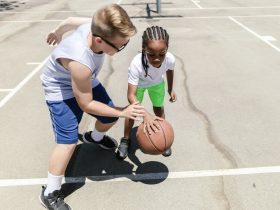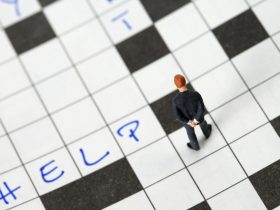Mathematics is a cornerstone of academic success, laying the groundwork for achievement across various subjects. As children master math concepts, they develop critical thinking skills that transfer to other areas of study. This intellectual growth empowers students to tackle complex problems, analyze information, and apply logical reasoning in diverse academic settings.
Math proficiency enhances performance in science, where numerical analysis and data interpretation are crucial. It also bolsters language arts skills by improving pattern recognition and sequential thinking. Even in subjects like history and social studies, mathematical understanding aids in grasping timelines, statistics, and economic concepts.
Recognizing math’s fundamental role, many parents seek 3rd grade math tutoring to establish a solid foundation early on. This targeted support can boost confidence and foster a positive attitude towards learning, setting the stage for academic excellence across the curriculum.
Reader's Roadmap
Key Takeaways
- Mathematical mastery enhances critical thinking and problem-solving skills applicable to all subjects
- Proficiency in math directly improves performance in science, language arts, and social studies
- Early math support through tutoring can boost confidence and foster overall academic success
Building a Strong Foundation in Math
A solid math foundation equips children with essential skills for academic success. It involves mastering basic operations, developing number sense, and cultivating a growth mindset.
The Importance of Mastering Basic Operations
Addition, subtraction, multiplication, and division form the core of mathematical understanding. Mastery of these operations enables students to solve complex problems efficiently.
Practice with flashcards and mental math exercises strengthens recall speed. Encouraging children to explain their problem-solving process verbally reinforces comprehension.
Incorporating real-world examples, like calculating grocery costs or measuring ingredients, makes math relevant and engaging.
Developing Number Sense and Mathematical Thinking
Number sense involves understanding quantity, relationships between numbers, and estimation skills. It’s crucial for higher-level math concepts.
Activities that promote number sense include:
- Comparing quantities visually
- Estimating answers before calculating
- Exploring different ways to represent numbers
The CPA approach (Concrete, Pictorial, Abstract) helps build strong conceptual understanding. It starts with hands-on manipulatives, progresses to visual representations, and culminates in abstract symbols.
Fostering a Growth Mindset in Math Learning
A growth mindset is the belief that math abilities can be developed through effort and practice. This attitude significantly impacts learning outcomes.
Strategies to foster a growth mindset include:
- Praising effort and strategy use, not just correct answers
- Embracing mistakes as learning opportunities
- Setting achievable goals and celebrating progress
Teachers and parents play crucial roles in modeling positive attitudes towards math. Encouraging persistence and providing constructive feedback helps children overcome challenges and build confidence in their math abilities.
Applying Math Skills Across Disciplines
Math skills are foundational across many academic areas. Applying mathematical concepts to other subjects enhances learning and deepens understanding in multiple fields. If your kids are looking for some extra support, you could always check out mathhelp.com as a potential way of assisting them.
Integrating Measurement and Geometry with Sciences
Measurement and geometry play crucial roles in scientific disciplines. In physics, students use geometric principles to analyze forces and motion. Chemistry relies on precise measurements for experiments and calculations.
Biology incorporates geometry when studying cell structures and organism anatomy. Environmental science utilizes measurement skills for data collection in field studies.
Students can apply their understanding of scale and proportion to interpret scientific diagrams and models. Geometric concepts help visualize molecular structures and planetary orbits.
Practical applications include:
- Calculating volumes in chemistry experiments
- Measuring plant growth in biology
- Analyzing geological formations using geometric shapes
- Applying trigonometry to determine heights of trees or buildings
Exploring Probability and Statistics in The Real World
Probability and statistics are essential in many real-world scenarios. These math skills help interpret data, make predictions, and understand trends.
In social sciences, statistics are used to analyze survey results and demographic information. Economics relies on statistical models to forecast market trends.
Students can apply probability concepts to:
- Analyze weather patterns
- Understand genetics and inheritance
- Evaluate risk in business decisions
- Interpret political polling data
Statistical skills enable students to:
- Create and interpret graphs
- Calculate averages and percentages
- Identify correlations between variables
- Assess the reliability of data sources
Enhancing Problem-Solving and Critical Thinking in Humanities
Mathematical problem-solving skills transfer well to humanities subjects. Logical reasoning and critical thinking, honed through math practice, enhance analysis in literature, history, and philosophy.
Students can apply mathematical structure to:
- Organize historical timelines
- Analyze patterns in literary works
- Evaluate arguments in philosophy
Problem-solving strategies help in:
- Interpreting symbolism in art
- Decoding ancient languages
- Analyzing cause and effect in historical events
Math skills also aid in:
- Budgeting for art projects
- Calculating proportions in visual arts
- Analyzing rhythm and meter in music and poetry
These applications demonstrate how math skills extend far beyond numbers, enriching understanding across diverse academic disciplines.
Conclusion
Mastering math equips children with critical thinking and problem-solving skills that transfer to other academic areas. A strong mathematical foundation enhances logical reasoning and analytical abilities, benefiting subjects like science and social studies.
Math proficiency also boosts overall academic confidence, encouraging students to tackle challenges across the curriculum. By developing number sense and abstract thinking through math, children gain tools to excel in diverse fields of study.
Ultimately, math mastery opens doors to advanced learning opportunities and future career prospects in STEM and beyond.







Leave a Reply
View Comments